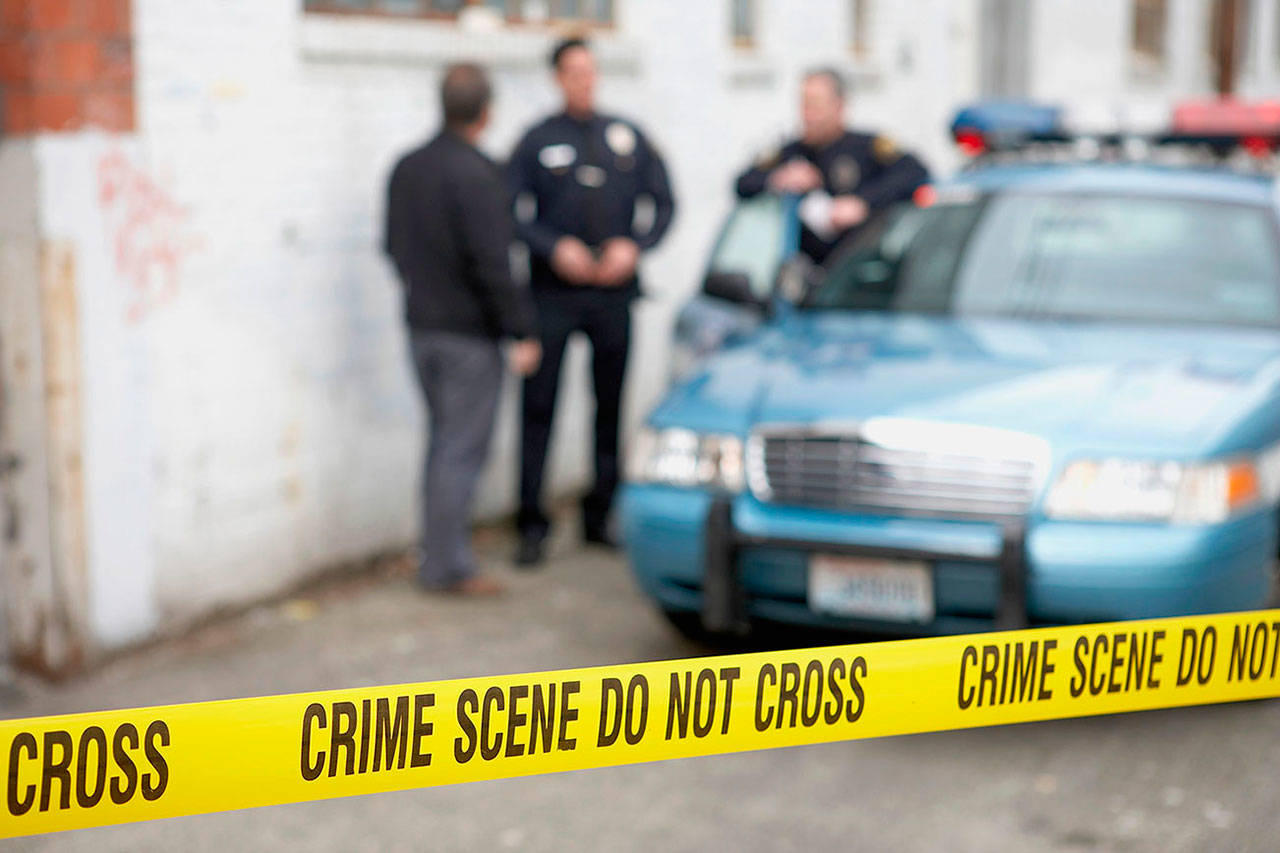Police officers are trained to deal with danger in a variety of situations — burglaries, robberies and high speed chases just name a few.
But according to a breakdown of officer deaths in the field, more officers are killed while on domestic dispute calls than any other service call.
King County Sheriff’s Office deputies got a taste of this reality last week when they allegedly faced down a suspect with a loaded gun during an early morning domestic violence call.
Around 4 a.m., deputies were dispatched on a call concerning a woman saying her boyfriend, Michael Lee Stewart, hurt her and her child.
When deputies arrived to help the woman, Stewart reportedly turned off the home’s interior and exterior lights.
With no streetlights nearby, one deputy used a night vision device to see Stewart approaching with a rifle.
He was ordered to drop his weapon. Instead, Stewart allegedly pointed it at the deputies. The rifle, a Ruger .243, was later found to be loaded.
One deputy then shot Stewart, hitting him multiple times.
He was sent to Harborview Medical Center with serious injuries, but is expected to live.
Stewart was charged Wednesday, Aug. 30, with second and fourth-degree assault.
An arraignment is scheduled for Sept. 12 at the Regional Justice Center in Kent.
Bail is set at $200,000.
While the incident was far from being the optimal situation any deputy or officer wants to walk into, it could be considered a success: the boyfriend was removed from the situation, the woman was sent to be treated, and no officers were injured or killed.
But that’s not always the case — in a study of 684 cases of police officer deaths while in the line of duty between 2010 and 2014, 91 of those deaths were during service calls, a report from the U.S. Department of Justice and the National Law Enforcement Officers Memorial Fund states.
Out of those 91 service-call related deaths, 22 percent of officers were killed while on a domestic dispute call.
It’s ironic, King County Sheriff John Urquhart said in an interview after the shooting, that out of all the other seemingly more dangerous things officers of the law are required to do, domestic violence investigations can be the most deadly.
It’s the emotional upheaval that makes these so dangerous, he added. Officer Todd Green with the Bonney Lake Police Department agreed.
“Sometimes people’s emotions are amped up,” Green said. “They don’t want officers showing up in what they see is a personal matter.”
Both Urquhart and Green said domestic dispute or violence calls are some of the most common calls they receive.
Urquhart said in more urban environments, it’s not uncommon to have every officer investigate at least one domestic violence report every day.
Because of the potential for danger, the Sheriff’s Office and the BLPD do a lot of pre-planning before officers walk into a domestic violence situation. Green said their strategies even detail out where they should park their car on the street and how they approach the home.
But nothing can keep the situation from escalating like backup, which is why all domestic violence calls require at least two deputies or officers, Urquhart and Green said, so that the parties involved in the domestic violence case can be safely separated while the incident is being investigated.
According to the DOJ study, 35 percent of officers who were killed while out on a domestic violence call were alone, whether they were dispatched alone or did not wait for backup.
Around 40 percent of officers killed while out on these calls were out with a partner, and 25 percent of officers killed went into the situation with three or more officers.
“The necessity of having three or more officers at a domestic situation to adequately separate parties, monitor family members and, if necessary, physically restrain and arrest a suspect, is apparent,” the DOJ wrote in its report. “As this study found, even in the situations where two officers were present, domestic violence calls had the potential of turning deadly.”
Urquhart added that it was also important for law officers to know whether they’re walking into a chronic domestic violence situation.
He said repeat offenders, “are historically more likely to go on and commit a more serious crime, up to and including homicide, later in life.”
Under federal law, a person convicted of domestic violence cannot own a gun.
In all but one case in the DOJ study, officers killed during a domestic violence call were killed with a handgun.
Stewart did not have any prior criminal record.
Department of Justice report on officer deaths by Ray Still on Scribd


